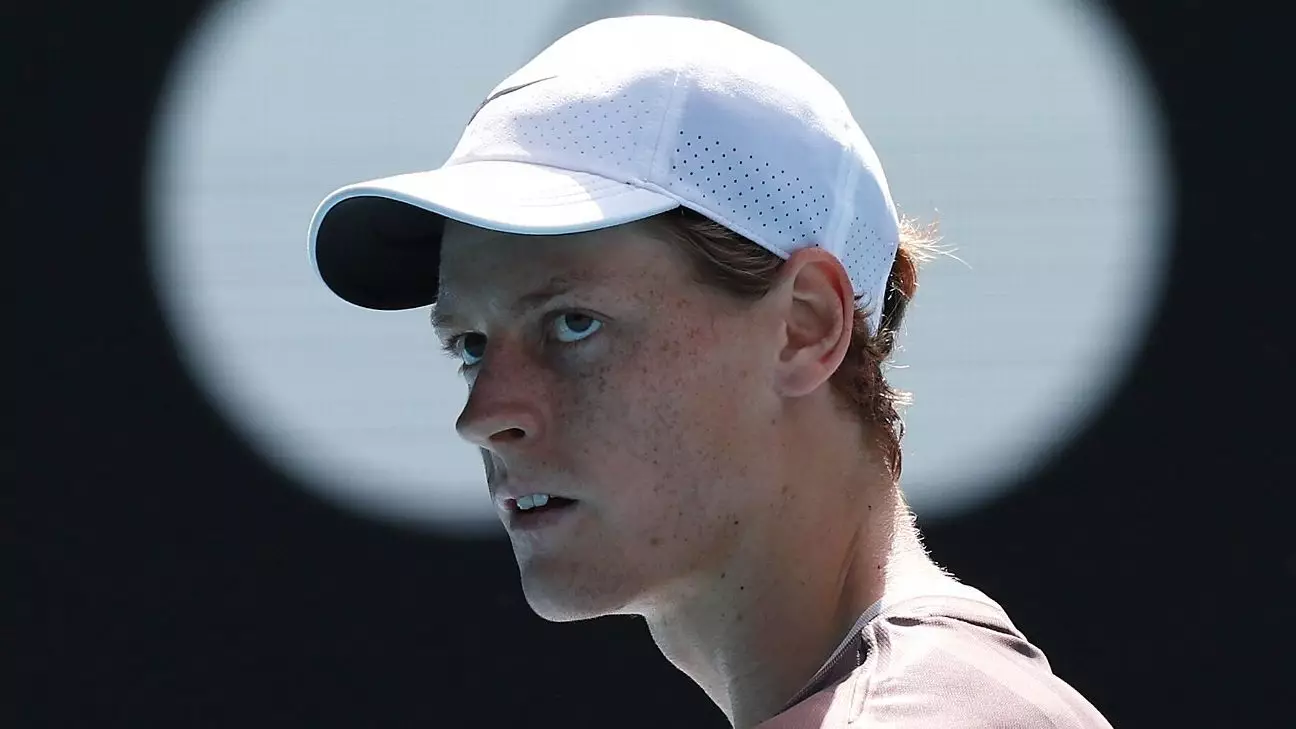For Jannik Sinner, the past year has been marked by a tumultuous struggle as he faced scrutiny from the World Anti-Doping Agency (WADA) following two positive doping tests. Recently, he accepted a three-month suspension as part of a legal agreement with WADA, aimed at closing a chapter that has been overshadowing his career since early 2023. Though the suspension might seem relatively short, it raises critical questions about the responsibility of athletes and their support teams within professional sports.
Sinner’s case began following his positive tests for Clostebol, a banned anabolic steroid, which was attributed to accidental contamination. His assertion that trace amounts of the substance resulted from a massage from a trainer who had inadvertently used Clostebol after injuring himself was acknowledged by the International Tennis Integrity Agency (ITIA). Initially, the ITIA decided against imposing a suspension, a ruling that WADA contested. Sinner, on the other hand, had hoped to resolve this issue without further damage to his reputation or career.
The settlement reached between Sinner and WADA enables him to participate in upcoming tournaments, including the French Open. This outcome suggests a concerted effort to balance accountability with fairness, acknowledging that while athletes bear ultimate responsibility for what enters their bodies, accidents can and do happen. The three-month ban from February 9 to May 4 means Sinner will be sidelined for a short period, but significantly, it also allows him to retain his competitive standing without a prolonged hiatus.
It is worth noting, however, that any disciplinary action, even a minor one, casts a shadow on an athlete’s achievements. Sinner, who recently claimed the Australian Open title, faces the prospect of losing valuable tournament points and potentially his world ranking during the suspension. Currently leading by over 3,000 points against his closest competitor, Alexander Zverev, the implications of his ban could change the dynamics of the ATP rankings if Zverev continues to perform well in Sinner’s absence.
One of the most contentious aspects of Sinner’s case is the notion of accountability within team dynamics. While WADA acknowledged that Sinner did not intend to cheat and that his exposure to Clostebol occurred unknowingly, the agency emphasized that athletes must be held responsible for any negligence displayed by their entourage. This raises pertinent questions about the fairness of penalizing individuals for the actions of others, especially in high-stakes sports where athletes rely heavily on professional teams for support.
Sinner’s situation highlights a deeper issue within competitive athletics: the potential for systemic inequities. Different athletes may face varying consequences for similar infractions based on many factors, including their public profile or the nature of the incident. This inconsistency leads to a broader discourse on the adequacy of existing regulations and whether they serve the best interests of fair play.
Responses from the broader tennis community have been mixed, illustrating the complexities of public perception and support. Italian Tennis and Padel Federation president Angelo Binaghi referred to Sinner’s experience as “shameful injustice,” emphasizing the emotional toll it took on the young athlete. This sentiment was echoed by Sinner’s legal team, which expressed relief that justice was ultimately served and that the facts of the case cleared Sinner of any intentional wrongdoing.
On the flip side, many fans and analysts remain skeptical about the integrity of the system, drawing attention to the delayed public disclosure of Sinner’s positive tests, which occurred only after he had successfully competed in major tournaments. In light of these events, Novak Djokovic articulated shared concerns among players regarding inconsistencies in how doping cases are managed.
As Sinner prepares to return to the court, the Italian star is undoubtedly eager to move beyond this chapter and refocus on what he does best—playing tennis. His commitment to the sport and acceptance of responsibility for his team underline a proactive approach to moving past the stigma attached to the suspension. With the Italian Open on the horizon, the tennis community can anticipate Sinner’s return as a strong one.
Ultimately, Jannik Sinner’s case serves as a cautionary tale for athletes across the globe, reiterating the need for vigilance, clear communication, and fair practices within the competitive landscape of professional sports. As he continues to evolve as a player and a figure within the sporting world, Sinner’s experience will likely resonate with many, fostering discussions around accountability, support systems, and the challenges of maintaining integrity in an increasingly scrutinized environment.

